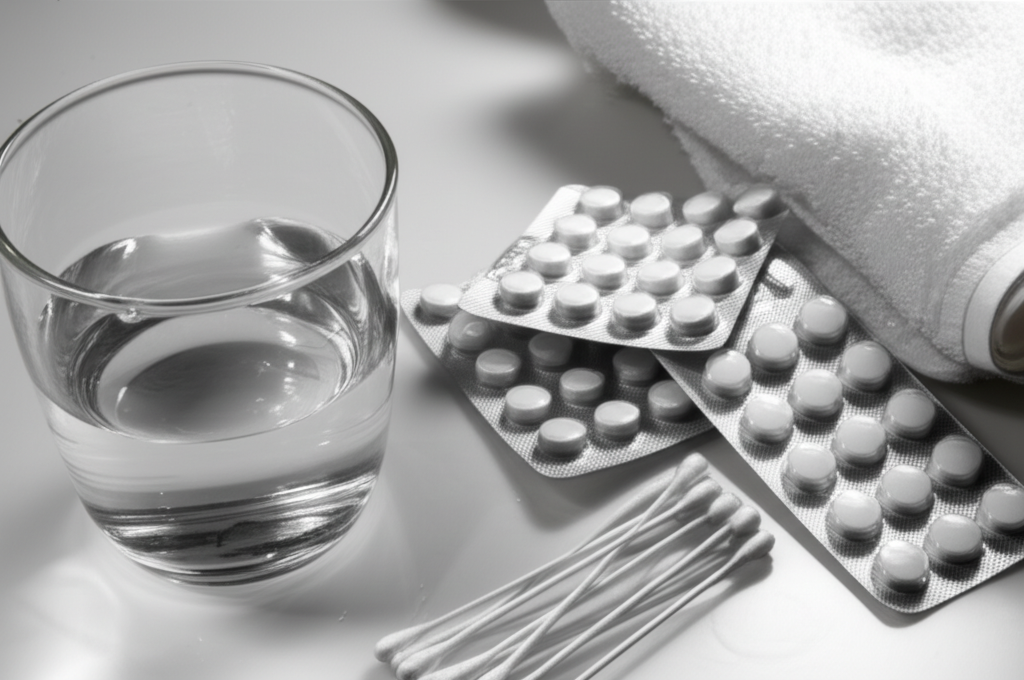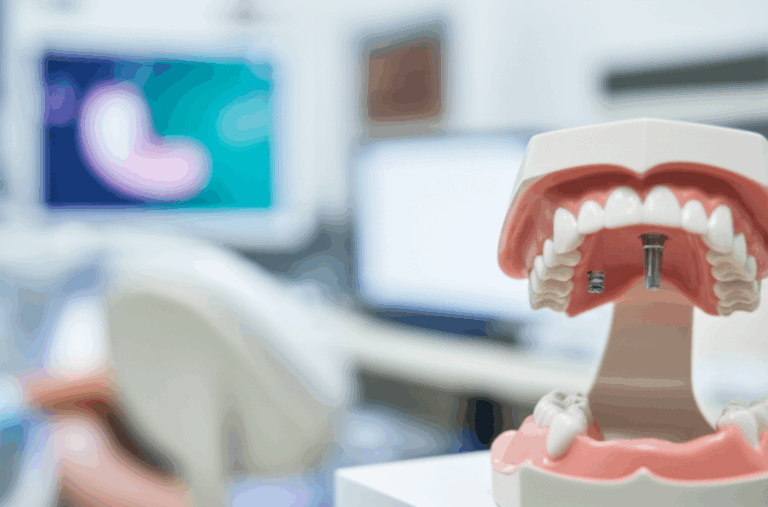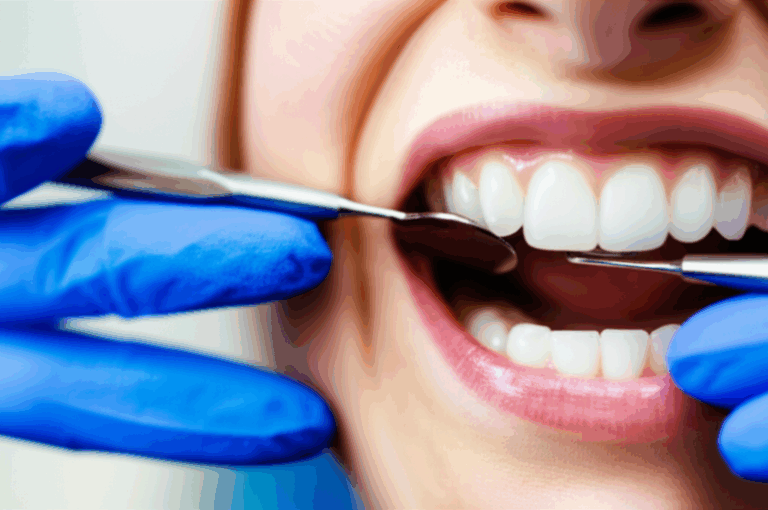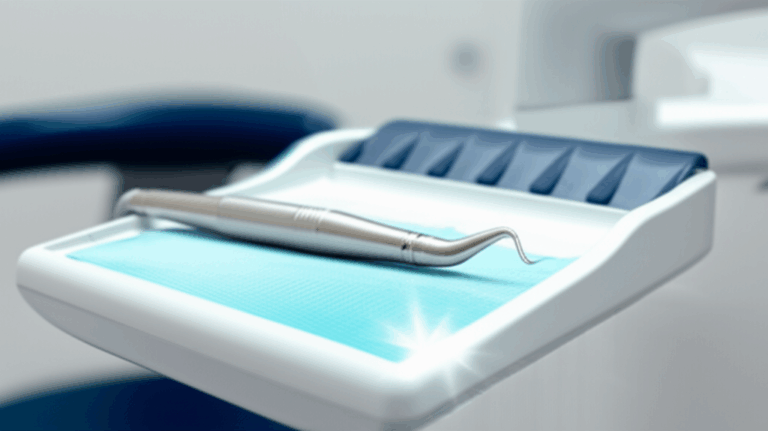
Emergency Guide: How to Manage an Abscessed Tooth Without a Dentist (But Why You Still Need One)
Struggling with a sore, pounding tooth and can’t see a dentist right away? This article will teach you safe home fixes for an abscessed tooth, warn you about serious dangers, and show you how to find affordable dental care fast. Knowing what to do—right now—could save your health or even your life.
Table of Contents
- What Is an Abscessed Tooth? Why Is It So Dangerous?
- How Do I Know If I Have a Tooth Abscess?
- Why Won’t Home Cures Fix an Abscess?
- What Immediate Steps Can I Take for Pain and Swelling?
- Safe Home Remedies: What Actually Helps?
- What Should I NEVER Do for an Abscessed Tooth?
- How Do I Know If It’s an Emergency?
- Help! I Can’t Afford a Dentist. What Now?
- How Will a Dentist Treat My Abscessed Tooth?
- How Can I Prevent an Abscess in the Future?
- FAQ: Common Questions About Abscessed Teeth
- Key Points to Remember
What Is an Abscessed Tooth? Why Is It So Dangerous?
Let’s start with the basics: An abscessed tooth isn’t just a bad toothache. It’s a pus-filled bubble caused by germs. This can happen at the end of your tooth’s root (tip abscess) or in your gums.
Think of it like a balloon full of germs and pus hiding deep in your mouth. That’s really bad because our mouths are close to our brain, heart, and breathing tubes. Germs in a tooth can quickly spread to the jaw, face, neck—or even your brain or blood. If ignored, a tooth abscess can wreck bone and tissue, make you lose your tooth, or send infection all over your body. Sometimes, people have even died from tooth infections left untreated.
Big Dangers:
- Jawbone and tissue damage
- Tooth loss
- Infection going to your brain, sinuses, neck, or heart
- Life-threatening sickness (like sepsis or Ludwig’s angina)
How Do I Know If I Have a Tooth Abscess?
Wondering if that pounding pain is a real abscess? The usual signs are hard to miss:
- Very bad, throbbing tooth pain (often worse at night)
- Swollen gums (red, puffy, or with a bump)
- Bad breath or a nasty taste in your mouth
- Swelling in your face, cheek, or neck
- Fever and chills
- Pus or drainage in your mouth
- Jaw pain or trouble opening your mouth
- Tooth feels “high,” loose, or sore to bite down
Here’s a simple table to help you spot the symptoms:
| Symptom | Possible Abscess Sign? |
|---|---|
| Severe toothache | Yes |
| Red, swollen gums | Yes |
| White or yellow pus bump | Yes |
| Facial swelling | Yes |
| Mild tingle only | Usually not |
If you feel more than one of these, take it seriously. Don’t wait to get help!
Why Won’t Home Cures Fix an Abscess?
Let’s be real: When you have a mean tooth infection, home tricks look nice. But here’s the truth—home remedies might help the pain a bit but they won’t fix the real problem.
Why not? The infection is trapped deep inside your tooth or jaw. Popping a pill or using a spice won’t get rid of tough germs or drain pus. Left alone, abscesses get worse—they don’t heal by themselves. The pain may go down for a while, but the germs keep growing (trust me, I learned this the hard way).
You need a dentist to get rid of the infection for good. Only dentist jobs—like draining the abscess, doing a root canal, or pulling the tooth—and sometimes special antibiotics, can really fix it.
What Immediate Steps Can I Take for Pain and Swelling?
I get it. Maybe it’s the weekend, your dentist can’t see you, or you can’t afford it right now. What can you do right now for that pain? Here are real ways to handle pain and swelling until you see a professional:
Pain Medicine
- Ibuprofen or Acetaminophen work well. They lower pain and swelling.
- Only take as the label says—never more.
Cold Compress
- Use a cold pack or a bag of frozen veggies on your cheek. Hold it for 15-20 minutes, a few times a day. It helps with swelling and numbs the pain.
Lift Your Head at Night
- Use extra pillows to lift your head. Lying flat can make pain and swelling worse.
Eat Soft Foods and Skip Hot/Cold
- Soft foods like soup, yogurt, mashed potatoes, and smoothies are easier. Avoid stuff that’s too hot, too cold, or tough.
Remember: These only help the pain for a bit. The infection still needs to be fixed by a dentist.
Safe Home Remedies: What Actually Helps?
Some gentle home tricks can give a little relief—for a short time only. I’ve tried these, and they help a bit but not for long:
Saltwater Rinse
- Mix half a teaspoon of salt in a glass of warm water.
- Swish around your mouth for 30 seconds and spit it out.
- Do this a few times a day. Salt helps clean and calm swelling.
Hydrogen Peroxide Rinse (Careful!)
- Only use 3% hydrogen peroxide mixed with the same amount of water.
- Swish for 30 seconds and spit out—never swallow.
- Don’t do this more than twice a day.
Clove Oil
- Dab a little clove oil on a cotton ball and gently touch it to the sore tooth.
- Clove helps numb the pain.
- Don’t swallow or use too much.
Garlic
- Some people crush a garlic clove, put it in a clean cloth, and hold it near the sore tooth.
- Garlic can fight some germs but won’t replace real medicine.
Keep the Area Clean
- Carefully brush and floss—skip the sore spot but don’t skip cleaning.
Don’t expect magic! Even strong natural choices like garlic or peroxide only help for a short while. They do NOT remove the hard-to-reach germs inside the tooth.
Want to know more about what dental pros do in emergencies? Learn about the digital dental lab approach.
What Should I NEVER Do for an Abscessed Tooth?
When you’re desperate, you might try risky stuff. Please—don’t do these things:
- Don’t try to pop or drain the abscess yourself. You could push germs deeper, make things worse, or cause heavy bleeding.
- Don’t use someone else’s medicine or old pills. They might not hit the right germs and could make you sick.
- Don’t put sharp things in your mouth (needles, for example).
- Don’t trust home remedies alone for a tooth infection.
- Don’t skip all food and water. Your body needs energy to fight sickness.
Dentists and doctors have lots of stories about people who made things worse trying to save money or skip the dentist. Don’t risk it!
How Do I Know If It’s an Emergency?
When should you stop reading and get help right now?
If you have ANY of these, go to an ER or urgent dental clinic now:
- Trouble breathing or swallowing
- Big, fast swelling in neck, cheek, or eyes
- Fever, chills, or confusion
- Sudden trouble talking, moving your jaw, or seeing
- Feeling weak, dizzy, or your heart is racing
These mean the infection may be spreading all over. Waiting is dangerous.
ER staff can start care and IV antibiotics and send you to a specialist. But remember—they can’t truly fix the tooth. You’ll still need a dentist after.
Want to know more about dental infections? Check out our dental problems review.
Help! I Can’t Afford a Dentist. What Now?
Let’s be real—dentists can cost a lot. But if money is your worry, don’t give up. Here are some ways to get help:
Dental Schools
Big cities often have dental schools where students (watched by real dentists) help for much less money.
Community Clinics & Health Centers
Look for clinics or public centers that charge less or use sliding fees. Many US areas have these to help everyone.
Payment Plans or Discount Programs
Ask a local dentist if they can split the bill over time or if they take dental discount cards.
Emergency Dental Clinics
They’re open nights and weekends, but might cost more. If you’re in a lot of pain, they’re worth a visit.
You can also look at china dental lab options, since some work with clinics to lower patient bills.
How Will a Dentist Treat My Abscessed Tooth?
You need the right fixes. Dentists solve abscessed teeth with:
Dentists use know-how, clean tools, and strong antibiotics to kill the germs—not just cover them up.
Want to know how dental labs help with crowns or bridges after infection? Check out our crown and bridge lab.
How Can I Prevent an Abscess in the Future?
If you’ve had a tooth abscess once, you never want another. Here’s how to help keep them away:
- Brush your teeth twice a day with fluoride toothpaste
- Floss once a day
- Use a saltwater rinse after eating sticky or sweet foods
- See your dentist for check-ups even if nothing hurts
- Get cavities or gum problems treated early
- Wear mouthguards if you play sports
If you use dentures or special guards at night, keep them clean and make sure they fit well.
A little prevention keeps tooth infections away.
FAQ: Common Questions About Abscessed Teeth
Q: Can a tooth abscess heal itself?
A: No. Without care, the germs just keep spreading.
Q: What if I leave a tooth abscess untreated?
A: You could get very sick, lose bone, or even die.
Q: Is it safe to use home remedies?
A: Some, like saltwater and clove oil, help pain—but they don’t cure the germ problem.
Q: Should I drain the abscess at home?
A: No. This is very risky and can make things much worse.
Q: Are pharmacy antibiotics enough?
A: Over-the-counter antibiotics don’t treat tooth abscesses. You need the right prescription from a dentist.
Key Points to Remember
- Abscessed teeth need fast care—not just home fixes
- Lots of pain, swelling, or fever? See a dentist or go to the ER soon
- Pain meds, salt rinses, and cold packs help for a short time only
- Never drain an abscess yourself
- Serious infections need dentist work and maybe antibiotics
- You can find cheaper dental care with schools, clinics, and payment plans
- Good brushing and dentist visits stop future abscesses
- Act early—your health could depend on it
Want to know about missing tooth fixes? Find out more about dental implant options.
Stay safe, keep your mouth clean, and don’t wait when it comes to an abscessed tooth!








